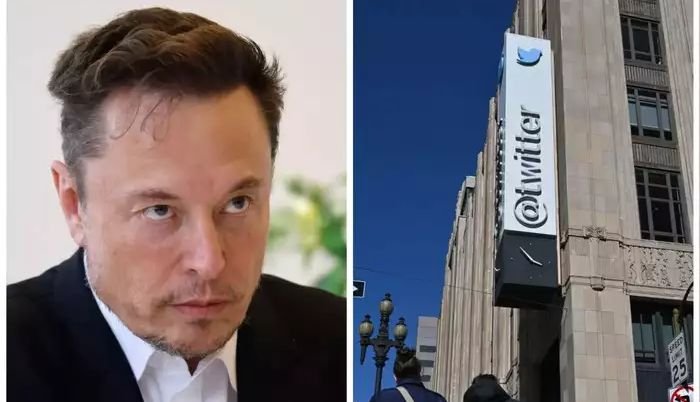A recent lawsuit has been filed by six former employees of Twitter against Elon Musk and X. Corp, Twitter’s holding company, in the District Court of Delaware. The lawsuit alleges that during a conversation with an investor at 4 a.m., Elon Musk stated that Twitter would only pay rent for its offices “over his dead body.”
The plaintiffs claim that Twitter failed to provide severance pay to its staff, and they have accused Musk and X. Corp of violating 14 different counts, including fraud, labor-rights laws, and breach of contract.
The lawsuit brings to light allegations of improper conduct and mistreatment of employees. Failure to provide severance pay is seen as a violation of labor-rights laws, while the accusations of fraud and breach of contract imply that the defendants allegedly made false promises or breached agreements with the employees.
The case will proceed in the District Court of Delaware, where the evidence and arguments from both sides will be presented. The outcome of the lawsuit will determine whether the allegations against Musk and X. Corp hold merit and if the former Twitter employees are entitled to compensation for the alleged violations.
In addition to the lawsuit filed against Elon Musk and X. Corp by former Twitter employees, there have been previous lawsuits from Twitter’s landlords in London, New York City, and San Francisco claiming that the company had been neglecting rent payments. The recently filed lawsuit provides new details regarding internal conversations about the rent situation.
According to the lawsuit, one of the plaintiffs named Joseph Killian, who had been with Twitter for 12 years and was responsible for office design, was allegedly aware that Elon Musk made a decision in December to stop paying rent for Twitter. The lawsuit claims that this information was conveyed to Killian by Pablo Mendoza, a venture capitalist who had invested with Musk and was involved in realizing Musk’s vision for a revamped version of Twitter.
These details shed light on the internal discussions and alleged decision-making that led to Twitter’s purported non-payment of rent. The lawsuit seeks to establish the liability of Musk and X. Corp for their involvement in this decision, further adding to the legal challenges faced by Twitter and its key stakeholders. The court proceedings will determine the validity of these claims and the potential consequences for the defendants involved.
The lawsuit provides further details regarding the attempts made by Joseph Killian, one of the plaintiffs, to convince Elon Musk, through Pablo Mendoza, of the potential risks associated with Musk’s decision to stop paying rent for Twitter. Killian allegedly highlighted the futility of trying to renegotiate the terms of Twitter’s leases and expressed concerns about the consequences.
According to the lawsuit, Mendoza responded to Killian’s concerns by stating that Elon Musk had remarked, “he would only pay rent over his dead body.” The alleged conversation took place at 4 a.m. on the same day.
Elon Musk has previously disclosed that he typically sleeps around six hours per night. Additionally, he has admitted in a separate interview with the BBC that his habit of tweeting after 3 a.m. had caused self-inflicted difficulties.
These statements and accounts from the lawsuit provide a glimpse into the internal discussions and alleged interactions surrounding the decision not to pay rent for Twitter. The lawsuit aims to establish the validity of these claims and the extent of Musk’s involvement. As the legal proceedings unfold, more clarity will be gained on the matter.
According to the lawsuit, Elon Musk’s attorney, Alex Spiro, allegedly expressed his opinion in a forceful manner, stating that it was unreasonable for Twitter’s landlords to expect the company to pay rent due to his characterization of San Francisco as a “shithole.” It’s worth noting that Twitter’s headquarters is located in close proximity to San Francisco’s Tenderloin district, which is known for its challenges related to homelessness and poverty.
In a tweet on Tuesday, Musk referred to downtown San Francisco as “a derelict zombie apocalypse,” further expressing his negative sentiments about the city. However, in an interview with CNBC, he mentioned that his employees were unable to work from home.
These statements and events mentioned in the lawsuit and Musk’s public comments highlight the contentious nature of the rent payment dispute and the differing perspectives held by the parties involved. The legal proceedings will assess the validity of the allegations, including the alleged comments made by Musk’s attorney and their potential implications on the case.
Read More:
- This Is Why Elon Musk HATES Mark Zuckerberg
- Elon Musk Finally Decided To Start Advertising For Tesla’s ‘New’ Models
- How Elon Musk and ChatGPT Will Change the WORLD
- How Will The Trip To Mars Be And When
